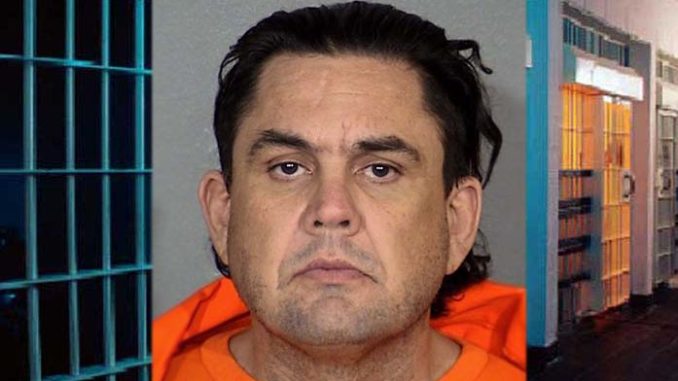
A Pima County man serving a nine-year prison sentence for a 2016 weapons misconduct offense is entitled to a new trial because the judge failed to follow proper protocols when the man wanted to dismiss -or fire- his court-appointed attorney, the Arizona Court of Appeals ruled Monday.
In an 3-0 decision, the court of appeals overturned Michael David Johnson’s conviction and sent the case back to the Pima County Superior Court for a new trial. The appellate court’s ruling takes effect in 30 days, giving the prosecutor time to decide whether to petition for review by the Arizona Supreme Court.
Court records show Johnson, 49, has served several short prison terms for offenses dating back to 1989. Then in August 2016, he was indicted by a Pima County grand jury on one count of weapons misconduct by a prohibited possessor.
Johnson’s case was delayed more than one year as the court addressed his mental competency to stand trial. That issue was resolved in September 2017 after which a trial was set for April 2018.
On the first day of his trial, Johnson informed Judge Janet Bostwick that he wished to proceed without the assistance of court-appointed attorney Bartholomew Reidy. No jurors had been selected at that point and Johnson stated he was prepared to represent himself without delaying the trial.
Bostwick, however, told Johnson “it is way too late to make a change of this nature at this time.” Johnson continued to complain about Reidy, including the attorney’s refusal to pursue a justification defense. He was convicted by the jury on April 27, 2018.
In overruling the trial judge, the court of appeals noted a defendant’s right to counsel “includes the right to proceed without counsel.” A trial judge is required to inquire whether the self-representation request is timely, unequivocal, knowing, voluntary, and intelligent, and if so, must grant the request unless the defendant’s purpose is to delay the trial.
“A court may not refuse to consider the defendant’s request altogether,” the opinion states. “Otherwise the constitutional right to defend one-self if he intelligently and competently chooses would be illusory.”
Johnson’s case was further complicated by the fact he failed to appear in court to hear the jury’s verdict. Court records show he was present throughout the trial but did not return when the jurors concluded their deliberations.
A nationwide arrest warrant was issued for Johnson, who was taken into custody in March 2019. He was formally sentenced April 24, 2019.
The Arizona Department of Corrections shows Johnson being eligible for early release in May 2026.
